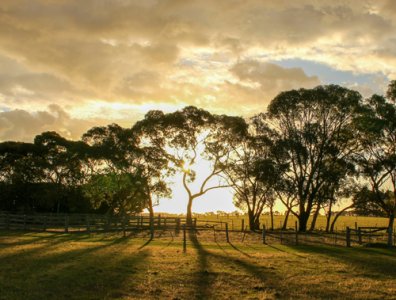A tipping point is imminent, and it’s time for our boardrooms to get uncomfortable
Bad, bad records are going to be broken this year, and it’s time for business leaders to accept that the transition to a low-carbon economy is going to be spiky.
When I was on the board of the stock exchange, the NZX, a gentleman asked at an AGM: “When will the NZX get with the times and have a female on the board?”
I looked at one of my fellow NZX directors, Alison Gerry (also a woman – the clue is in the name) and said: “I think we need to wear more lipstick next year.”
This memory came back to me while at New Zealand’s first advanced climate change governance course, run by the Institute of Directors (IoD). I overheard a comment that most of the directors in the room were women, and that most chief sustainability officers (CSOs) are women.
It got me thinking. I chair the steering committee of Chapter Zero New Zealand, a climate governance group linked to a global network of climate-conscious directors. I don’t get paid for this, but I love it, and I am passionate about it. And, you should already have noted, I am a woman.
Am I involved with Chapter Zero NZ because I care about the climate, because I am a woman, or is it both? I don’t know. Perhaps I should ask Greta Thunberg.
In any case, the climate challenge can only be solved by all people. And that challenge is upon us. The World Meteorological Organisation says multiple bad climate records were broken in 2023. It was the hottest year on record. There was an unprecedented ocean heatwave. Glaciers retreated by record amounts. It goes on.
Here’s another headline, from the COP28 meeting in Dubai last year. We are not going to limit global warming to 1.5 degrees above pre-industrial levels. Boom. Full stop. Done. We are charging towards three degrees of global warming by the end of this century.
Now, at 1.5 degrees we lose coral reefs. Ice shelves in Antarctica and glaciers start to collapse and or dissolve. At three degrees, I don’t really want to know what happens, but I’m pretty sure it’s really, really bad.
I remember sitting on the prime minister’s strategic risk committee, which Sir John Key set up at the end of his tenure. We reviewed the World Economic Forum Risk Report. This was about eight years ago and climate was only just starting to feature. Even now, only two of the top 10 risks for the next two years are related to climate. But looking forward a decade, half of the top 10 risks identified are related to climate. And they don’t include things that we understand like extreme weather or pollution. They include things like “critical change to earth’s systems”, “collapse of ecosystems”, things you can’t even get your head around.
So the widespread consensus at COP28 is that we are not going to limit global warming to 1.5 degrees. That should concern everybody.
Things are going to change, and they have to if we are going to meet the government’s target for all of Aotearoa New Zealand, which is net zero by 2050 (barring biogenic methane).
When COP29 kicks off in Baku, the capital of Azerbaijan, this November, a key focus will be how we finance that transition to a low-carbon economy. What’s going to happen, and what is already happening, is that trillions of dollars are going to be allocated to climate transition, adaptation and renewable energy.
The issue for us in New Zealand is how do we get our hands on that climate finance and how do we become a competitive global player? We need to partner up with others and tap into those new capital flows that are moving around the globe.
At board level, we should adopt what works for others. Global research into companies that have managed to reduce their carbon footprints shows these commonalities: they set a target; they report and measure against that target; and they have a CSO or equivalent sustainability executive.
The idea of a CSO rekindles my musing on women. As previously mentioned, most CSOs are women. Here’s my take on how to get the best value from them.
Think for a minute – who is a person you work with who makes you feel uncomfortable? And I don’t mean in a creepy, report-to-HR way. If you chair a board, it’s really important to know who makes you feel uncomfortable. Chairs are the top of the pyramid and people tend to agree with you. (That’s kind of a good career move for them.) What needs to happen now, if we are to improve our climate governance capability, recognise climate opportunities and manage climate risks, is that chairs need to listen to the people who make us uncomfortable.
This article was first published on The Spinoff.



